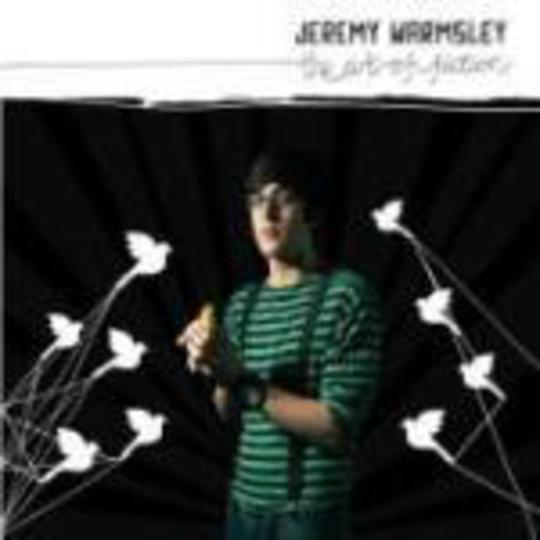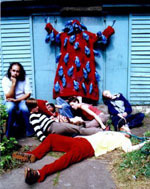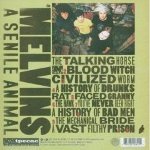Many bands are praised for ploughing their own furrow - taking a stylistic direction and resolutely, stubbornly sticking to it without stray for an hour's album length. This is not the approach of Jeremy Warmsley - whose desire to do everything and anything (musically) at once would create the equivalent of ploughing furrows to mimic the Hampton Court maze. It's not that Warmsley is stylistically weak and pushed around by the gales of producers and collaborators - this homespun album dashes through its kaleidoscope of melody and mood in sheer thrill of it being possible.
Those moods - etched out with unexpected chord changes in 'Modern Children', with dark beats in 'The Young Man Sees The City As A Chess Board', with the instant sun-ray effect of gospel backing in 'Jonathan & The Oak Tree' - really scale the whole spectrum. There is the optimism of the young urban troubadour shown in 'Dirty Blue Jeans' - "I'm off to meet my fortune in a big old world / and it won't take long to get where I'm going" - but this optimism is multi-dimensional, laced with regret, passion, excitement and loneliness. '5 Verses' is brilliant storytelling - a vignette of a relationship "started as a lie". The final track, 'Hush' takes a little from Animal Collective in its dreamy a-rhythmic trance.
Warmsley's devilish abilities of songwriting lie largely in his attention to detail. Each song is splattered with the marks of a feverish imagination and desire for perfection. On 'Matter of Principle' clippings and cuttings of acoustic guitars to fill in any awkward gap lend a fleeting similarity to Tunng. It's a real treat to listen to music which is so crafted - in which no moment has been created in auto-pilot. It seems a level of crafting which left the world at large when the machines came in and replaced the hands of the artisans. The detail isn't exclusively in the sounds - the lyrics suggest a personality that notices the smallest details in creation of the bigger picture. 'I Believe In The Way You Move' notes the shivers of a body, the stares of people not visible. 'If I Had Only', most melancholy, tells of a sweet machine "where i bought myself a bottle / to remind myself of all the things I haven't got".
In the eleven songs showcased here, the musicianship, the imagination and the song-craft are only shadowed by one other feature - that feature being ambition. In a significant way, the shadow overcast by ambition is a positive one - The Art of Fiction is a debut album, and one from which there will be space enough to change and develop. One of the (few) flaws of the album lies inherent - and could be guessed from the title. Each song takes it's own little story, and stands quite separate from the next, inhibiting smooth flow, which stylistic choppiness only exaggerates. The occasional lyrical crossovers between songs can work brilliantly - from 'I Promise', using the term as reassurance, to the insistence that "promises are made of glass" in 'A Matter of Principle' suggests a narrative running between songs that the listener is not aware enough of.
Feel free to put my criticisms down as sour grapes - jealousy that I don't have the enthusiasm, patience nor skill to write, record and produce an album this good myself. There have been few other releases this year with so many nuances to reveal themselves over infinite listens.
-
8Rachel Cawley's Score






















